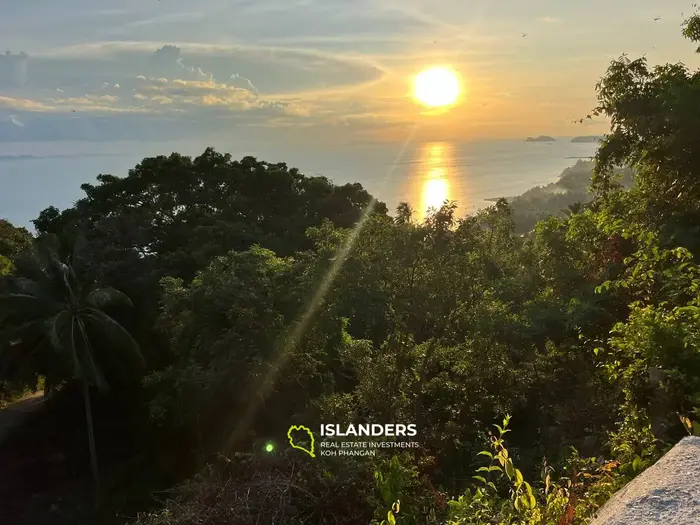Thailand, located in the heart of
Southeast Asia, attracts millions of tourists every year with its exotic
nature, rich culture and friendly people. Snow-white beaches washed by the warm
waters of the Andaman Sea and the Gulf of Thailand, dense tropical forests and
picturesque mountain landscapes create a unique atmosphere for relaxation. Here
everyone will find something to their liking: nature lovers can enjoy the
beauty of national parks, history buffs can explore ancient temples and ruins,
and gourmets will appreciate the unique Thai cuisine.
In addition, Thailand is known for its
cultural identity. Temples decorated with golden Buddha statues, traditional
markets with exotic goods, holidays and festivals - all this makes a trip to
this country unforgettable. But despite all the attractiveness, it is important
to remember that there are dangers in Thailand that can threaten uninformed
tourists. In order for the holiday to be safe and comfortable, it is worth
knowing about the possible risks and being prepared for them.
Dangerous Animals of Thailand
Thailand is famous for its diverse
wildlife, but there are also animals that are dangerous to humans among its
inhabitants. Tourists planning to explore the jungle or relax on the beaches
should know which creatures may pose a threat and how to avoid unpleasant
encounters with them.
Snakes
Snakes are one of the main dangers for
tourists, especially those who enjoy walking in the wild. There are several
poisonous species in Thailand, including the king cobra, green viper, and
krait. In Phuket, one of the popular tourist islands, snakes are quite common,
especially in forested and mountainous areas. The venom of most poisonous
snakes can cause paralysis, respiratory failure, and even death if medical
assistance is not provided in time.
To avoid snake bites, you should follow a
few simple rules:
●
Do not walk through the forest
barefoot or in open shoes;
●
Do not touch snakes, even if they
appear harmless;
●
Always watch your step when
walking on nature trails.
Geckos
Many tourists who first come to Thailand
may be afraid of geckos, small lizards that can often be seen in houses and on
the streets. However, myths about their danger are greatly exaggerated. Geckos
do not pose a threat to humans - on the contrary, they are useful, since they
eat insects, including mosquitoes, which can carry diseases. Some species, such
as toki, can make loud sounds that can be frightening, but they are not capable
of causing harm to humans.
Spiders
Poisonous spiders are also found in
Thailand, although the likelihood of encountering them is much lower than with
snakes. Dangerous spiders include black widows and Brazilian wandering spiders.
These insects prefer secluded corners: cracks in houses, tree cavities, or
dense foliage. Their bites can cause severe pain, swelling, and even severe
allergic reactions.
To minimize the risk of a spider bite,
follow these guidelines:
●
Before sitting or lying on the
ground, inspect the surface for spiders;
●
Avoid contact with cobwebs;
●
Regularly inspect and clean living
areas, especially those near nature.
Crocodiles
Crocodiles are found in freshwater rivers
and reservoirs in Thailand, although their population has significantly
decreased in recent decades. Currently, crocodiles are more often found in
special reserves, but in the wild, an encounter with these animals is not
excluded. This is especially true for remote areas where there are water
spaces. Crocodiles can be aggressive if they feel threatened, and their attacks
can be fatal.
To avoid dangerous situations:
●
Do not swim in unfamiliar
freshwater bodies unless you are sure they are safe;
●
Observe local authority
instructions and warning signs in nature parks;
●
Stay away from areas where
crocodiles are found, especially in the evening and at night when they are most
active.
Knowing these simple rules will help you avoid
encounters with dangerous animals and make your stay in Thailand safe.
Climate hazards
Thailand's climate, despite its warm and
tropical nature, can pose a potential threat to tourists, especially if they
are not prepared for sudden changes in weather conditions.
Rainy season and floods
Thailand's rainy season runs from May to
October, and is particularly strong on the west coast, including the popular
tourist areas of Phuket and Krabi. During this period, heavy tropical downpours
occur, which can last for several hours and cause flooding. Floods can inundate
roads, making travel difficult, and in rare cases, even interrupt access to
some tourist areas. Landslides are also possible in mountainous areas.
To keep yourself safe during the rainy
season:
●
Move around the country taking
into account the weather forecast;
●
Avoid boating or mountain walking
during periods of heavy rainfall;
●
Please follow local government
warnings about possible flooding.
Sunburn and overheating
Thailand's tropical climate makes it an
attractive beach destination, but prolonged exposure to the sun without
protection can lead to sunburn or heatstroke. Sun activity is high year-round,
and even in cloudy weather, ultraviolet rays can cause harm.
Precautions:
●
Use sunscreen with a high protection
factor (SPF 30 or higher);
●
Wear a hat, sunglasses and light
clothing with long sleeves;
●
Limit sun exposure during midday
when it is most intense;
●
Drink plenty of water to avoid
dehydration.
Tsunami danger
Tsunamis are rare but very dangerous
natural phenomena in coastal areas of Thailand. The most tragic case occurred
in 2004, when a strong earthquake in the Indian Ocean caused a tsunami that
killed thousands of people on the west coast of Thailand, including Phuket and
other popular resorts.
To minimize risk during your vacation:
●
Please pay attention to evacuation
signs on beaches and coastal areas;
●
Follow local government and
earthquake warnings;
●
If you feel a strong earthquake or
notice a sharp low tide, immediately leave the coastal area and move to higher
ground.
Mosquitoes
and Insect Bites
Thailand, like many tropical regions, is
a high-risk area for mosquito-borne diseases.
Main diseases
Among the diseases transmitted by
mosquito bites, the most dangerous are malaria and dengue fever. Dengue fever
is one of the most common diseases in densely populated areas and popular
tourist destinations, especially during the rainy season. Symptoms include high
fever, joint and muscle pain, rash, and headache. Malaria is less common and
occurs mainly in remote areas, especially near forests.
Risks by region
Most major tourist areas, such as
Bangkok, Pattaya and Phuket, have a low risk of malaria, but rural and forested
areas have a higher risk. Dengue fever may be more common in urban areas.
Methods of protection
To minimize the risk of mosquito bites
and infection, follow these guidelines:
●
Use repellents containing DEET or
other active ingredients;
●
Wear long sleeves and trousers,
especially in the evening;
●
Sleep under mosquito nets,
especially in areas with a high risk of infection;
●
Install mosquito nets on windows
and doors indoors.
Marine
hazards
The sea off the coast of Thailand
attracts many tourists, but the water and beaches can conceal certain dangers
that are important to consider when planning a vacation.
Sea snakes
Sea snakes are found in the waters around
Thailand, especially in the Andaman Sea. These creatures have very strong
venom, but they rarely attack people and usually avoid contact. Sea snakes are
most often found near coral reefs and rocky coastlines.
To avoid danger:
●
Do not touch sea snakes if you see
them while swimming;
●
Follow local beach warnings and
avoid swimming in areas where snakes are present.
Poisonous jellyfish
Some species of jellyfish that live off
the coast of Thailand can be dangerous to humans. Contact with their tentacles
causes burns, pain, and can lead to serious allergic reactions. The most
dangerous are box jellyfish, whose stings can be fatal.
Safety recommendations:
●
Swim only on equipped beaches
where jellyfish are regularly checked;
●
Avoid swimming in areas where
jellyfish warning signs are posted;
●
If bitten, seek medical attention
immediately.
Corals and sea urchins
Swimming in coral reefs is one of the
most popular tourist activities in Thailand. However, the corals can be sharp
and cause injuries, and the sea urchins that live among the reefs can prick you
with poisonous spines, causing severe pain and possible infection.
How to avoid injuries:
●
Do not walk barefoot on the
bottom, especially near corals;
●
Use special swimming shoes to
protect your feet;
●
Do not touch or cut corals - this
is dangerous not only for you, but also for the ecosystem.
Sharks
Shark attacks are extremely rare in
Thailand, and most species that inhabit its waters pose no danger to humans.
However, there are a few simple precautions to keep in mind when swimming in
the open sea or scuba diving.
Safety tips:
●
Do not swim far from the shore and
avoid swimming at sunrise and sunset when sharks are most active;
●
Avoid swimming with open wounds or
in areas where fish bait may be present;
●
Follow the instructions of guides
and local lifeguards if you are diving or snorkeling.
By following these recommendations, you
can significantly reduce the risk and enjoy a safe holiday in Thailand.
Cultural features
When traveling to Thailand, it is important
to consider not only natural and climatic factors, but also local social and
cultural characteristics. Knowing the traditions and rules of conduct will help
you avoid trouble and make your trip more comfortable.
Rules of conduct
One of the most important cultural
features of Thailand is respect for religion and the monarchy. Tourists should
remember the strict rules of conduct, especially in sacred places:
●
Visiting Temples : When visiting Buddhist
temples, a dress code must be observed - shoulders and knees must be covered,
and shoes must be removed before entering. Women are not allowed to touch monks
or hand them anything directly.
●
Criticism of the monarchy : Thailand has
strict lèse-majesté laws, and criticizing the king or the royal family can lead
to serious legal consequences. Even jokes about it can be taken as insulting.
●
Public behavior : Avoid public displays of
affection and be careful with gestures. For example, do not point your finger
at someone or touch their head - this is considered disrespectful.
By following these simple rules, tourists
can avoid awkward situations and respect local customs.
Road hazards
Thailand's road traffic can seem chaotic
to foreigners. The country drives on the left side of the road and traffic
rules are often ignored, which creates certain risks for tourists, especially
those who rent vehicles:
●
Motorbike and Car Rentals : Renting a
motorbike is popular among tourists, but it comes with high risks due to
frequent accidents. Before renting, make sure you have an international
driver's license and always wear a helmet. When renting a car, be sure to check
the insurance and the condition of the vehicle.
●
Pedestrians : Attention pedestrians! In
Thailand, pedestrians are often not given the right of way even at zebra
crossings, so be careful when crossing streets and watch the traffic.
To stay safe, watch your speed and be
alert, especially on busy roads.
Fraud and Crime
Like any other tourist country, Thailand
has its share of scams targeting tourists. It is important to be aware of the
most common scams to avoid being scammed:
●
Tuk-tuks and taxis : Sometimes tuk-tuk and
taxi drivers may offer discounted rates or special tours that actually end up
in visits to overpriced shops. Use official taxi apps like Grab to avoid being
scammed.
●
Fake Tours : Be wary of tour offers from
strangers or street agents. Often, such tours do not live up to their promises
or are significantly overpriced.
●
Fake Tickets : Always buy tickets for events,
ferries or buses only from official sellers and avoid middlemen.
Knowing these patterns and using common
sense can help you avoid many unpleasant situations.
How to stay safe in Thailand?
Thailand is a country rich in culture,
natural beauty and a variety of tourist activities. However, like any other
place, there are risks that can ruin your holiday if you are not careful and
prepared. To sum it up, here are some key safety tips for Thailand:
●
Follow the rules of conduct in
temples and other sacred places, respect local laws and avoid criticizing the
royal family;
●
If you rent a vehicle, follow the
traffic rules, be especially careful on the roads and always use safety
equipment;
●
Be vigilant when interacting with
strangers, check excursion offers, and use only trusted services for ordering
transport and purchasing tickets;
●
Prepare for the climate, protect
yourself from the sun and be prepared for possible flooding during the rainy
season. Use repellents and mosquito nets to protect yourself from mosquitoes;
●
Use caution when swimming in the
sea and exploring natural areas to avoid encounters with poisonous jellyfish,
sea snakes and dangerous animals.
Following these guidelines will allow you
to enjoy the beauty and unique culture of Thailand without worrying about
safety.





